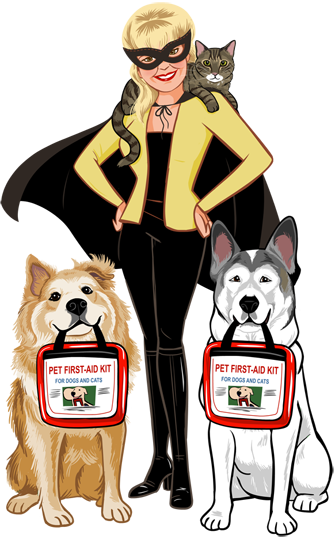
Starting a dog walking business may be a dream come true for most people, but it also comes with numerous risks. The most obvious being if the dog you’re walking bites a person. However, most dog walkers don’t pay attention to the costs involved with injuries to dogs.
Dog walking insurance and bonding is a must-have for any dog walker. Accidents happen – and insurance covers your business, your clients and their pets from financial uncertainties.
Understanding Dog Walking Insurance
Professional dog walkers are responsible for any financial ramifications that may come with working with more than one dog. These can include legal costs, costly medical injury claims, property damage costs, vet bills, and theft.
A comprehensive dog walking insurance policy protects your business and your employees. Having an insurance policy also boosts your credibility as a dog walker.
Here are some costly accidents covered by dog walking insurance:
- If a dog you’re walking gets injured after fighting with another dog.
- The dog you’re walking bites a pedestrian.
- Failure to lock the front door of your client and their home gets broken into.
- A dog eats something toxic when under your care.
Bonding and Insurance for Dog Walkers
Unlike in the past, many insurance companies are now offering dog walking policies. What’s more, you can get good dog walker insurance online. You can also get good insurance by asking other dog walkers what they use.
Apart from dog walking insurance, you need to enquire about the bonding requirements in your area. Some companies that provide dog walking insurance also provide bonding policies.
Why Do You Need Bonding?
Bonding is a type of insurance that covers your clients against any losses due to actions by the contractor – the dog walker. Being bonded as a dog walker means your clients will be compensated in case of property damage or theft.
Bonding requirements differ from state to state. Depending on which state you live in, you might require bonding before registering your business or buying insurance. Even if bonding is not mandatory in your state, it is still advisable to get bonded. Why?
Because being bonded assures potential clients that you’re trustworthy and you will behave well when at their homes and caring for their dogs outside.
Note: if you have employees, you need to buy a fidelity bond to cover you as a business owner. It will protect you against any losses due to dishonest acts by your employees.
What’s Covered in the Dog Walking Insurance Policy?
No matter how small or big your dog walking business is, you need to obtain a general dog walking liability insurance. This policy will protect you against the costs of legal claims due to damages or injuries to a third party when carrying out your business operations. This coverage features the following:
Personal and Advertising Injury
Personal and advertising clauses are common for many business insurance plans, including dog walking insurance policies. It includes claims resulting in any of the following:
- Malicious Protection
- False arrest, detention or imprisonment
- Libel or slander
- Wrongful entry or wrongful eviction
- Advertisement offenses
Medical Expenses
Medical coverage is a common feature of general liability policy. It covers medical costs in case people are injured by a dog under your care.
Products/Completed Operations
You need protection against products or services liability claims.
Lawsuits related to bodily injuries and property damage are common for dog walkers. If the dog under your care injures a person or causes damage to property, you could face costly lawsuits.
General liability insurance policy got you covered under the products and completed operations clause of your policy.
Animal Bailee
This coverage offers protection against loss or damage caused by pets under your care. You need this policy more especially if you know you’ll be held liable for any injury on your client’s pets.
Tips to Help Reduce Dog-Walking Insurance Claims
While most of these occurrences involve pedestrians, the dog walker is the one to blame in case of a dog bite. Here are some tips to help minimize these occurrences:
- Advise other people to stay away from the dog.
- Be conscious of your surroundings and the path you’re taking.
- If you’re walking a dog that has bitten a person in the past, walk it in less populated areas.
- When in high traffic areas, keep your dogs on a tight leash.
- Be sure to talk with clients about their dog’s temperament and their likelihood of being aggressive before walking the dogs.
- Follow your gut, even if the dog has no known history of aggressiveness.








